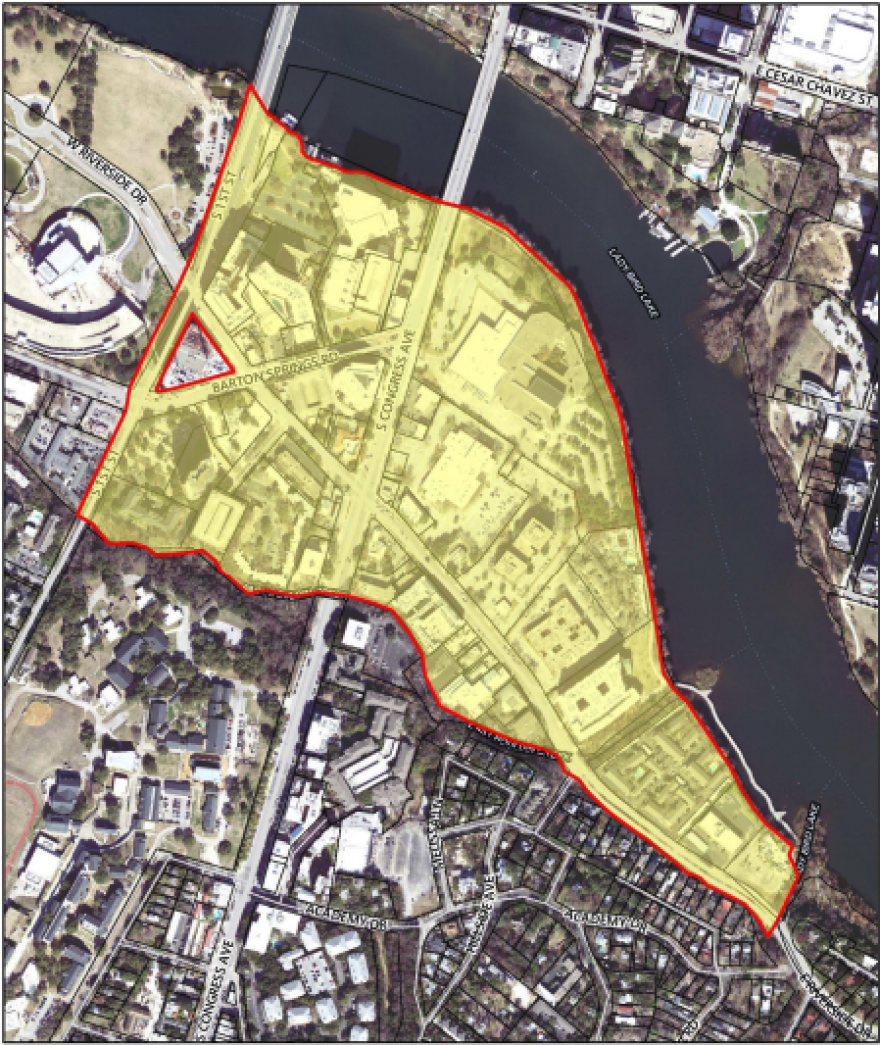A group of homeowners, including a former state senator and a former Austin City Council member, has sued city leaders over a plan to divert a portion of property taxes to pay for roads, sidewalks and affordable housing in a South Austin neighborhood.
Attorneys argue that the City Council’s approval of a tax increment reinvestment zone in the area, also known as a TIRZ, violates state law.
In December, council members created the South Central Waterfront TIRZ, which spans parts of the Bouldin Creek, Travis Heights and East Riverside neighborhoods. By doing so, they agreed to set aside a portion of property taxes collected in this area over the next two decades — which the city estimates will total roughly $354 million — and use them to fund various projects within these neighborhoods.

But attorney Bill Bunch, who is representing the plaintiffs along with former Travis County Judge Bill Aleshire and attorney Fred Lewis, said this area does not meet state criteria for this type of financing tool. (Lewis was also a plaintiff in the lawsuit against the city that halted its rewrite of the land development code.)
“Our state laws provide that you can only subsidize private development in blighted areas that otherwise would not develop on their own without public support,” Bunch told KUT. “That’s certainly not the case with the south shore of Lady Bird Lake.”
Shelley Parks, a spokesperson for the City of Austin, said the city believes the creation of the TIRZ does not violate state law.
The lawsuit was filed against current City Council members and interim City Manager Jesús Garza. Among those suing are Gonzalo Barrientos, a former Texas state senator, and Ora Houston, who served on the Austin City Council until 2019.
Typically, the property taxes that cities collect from residents go into a communal pot known as a "general fund" and can be used to pay for a wide variety of city services, such as police and fire. But Texas law allows municipalities to siphon off a portion of property taxes from one neighborhood, as long as that money is spent on projects that benefit people living in the area, such as parks and sidewalks.
It can’t just be any neighborhood, though. According to state law, this area has to be experiencing some kind of “blight,” such as dilapidated buildings or poorly laid out streets. It also needs to be a part of town where redevelopment would not happen without public money.
In their lawsuit, attorneys quote former Austin Mayor Steve Adler during a public hearing on the TIRZ in December.

“No one is saying that this area wouldn't develop if we didn't do this,” Adler said. “It's just not going to develop the way that we would want it to develop.”
One example of how the money collected in the TIRZ may be used is with the former site of the Austin American-Statesman offices, approved for redevelopment by council members last year. Endeavor Real Estate Group plans to build more than a thousand new condos and apartments — a small portion of which would be affordable housing — plus office space across several towers just south of the Congress Avenue Bridge.
Representatives for Endeavor argued at public meetings about the project that the developer needs money from the TIRZ to pay for various road and infrastructure projects in the development. A lawyer representing the project, Richard Suttle, did not respond to a request for comment on the lawsuit.
Correction: An earlier version of this story misquoted Bunch.













